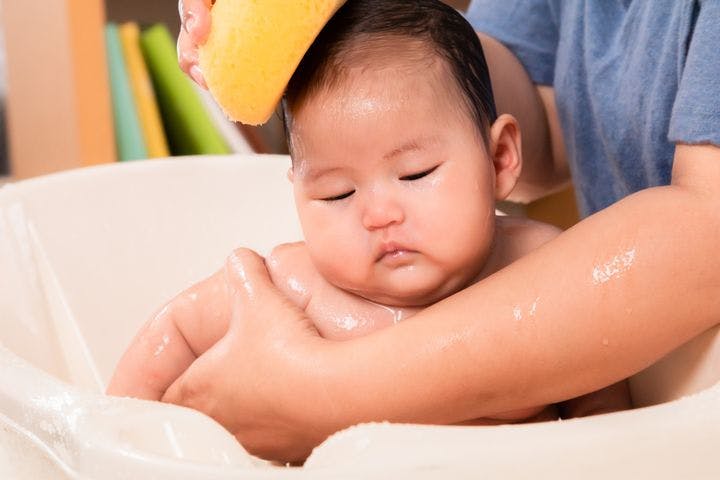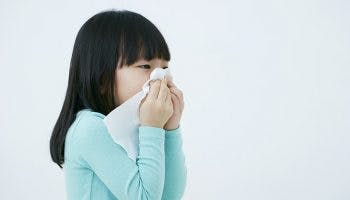Parents Share How They Dealt with Their Baby’s Colic Pain
Published | 5 min read
Colic pain can be excruciating for babies, causing them to cry incessantly. A few simple steps may help soothe your baby and alleviate their discomfort.

It’s normal for a newborn to cry or get fussy frequently, especially within the first three months of life. But if they cry incessantly for longer than three hours daily, three or more days a week and for three weeks or longer, it may be a sign of colic pain.
A colic cry is unlike other crying patterns. The most notable characteristics of a colic cry are that they’re episodic and always happen at the same time. You may notice that a baby:
- Is difficult to soothe
- Cries or screams in a high-pitched tone
- Has facial redness or pale skin around the mouth
- Draws their legs in, stiffens their arms, arches their back, clenches their fists, or tenses their abdomen
These two women dealt with colic pain first-hand and shared ways to overcome it.
How Two Women Handled Colic Pain
Joan, a 71-year-old baker and great-grandmother, is no stranger to colic over the years. Her go-to remedy to help get rid of a grandchild or great-grandchild’s discomfort? Boiled eggs and gripe water.
“I grew up in a community that advocated the use of folk remedies, such as rubbing a hard-boiled egg over the forehead or stomach to relieve a fever or pain, respectively. I believe that the method works, but I know others may disagree. Also, when I learned that gripe water could potentially help treat colic pain, I gave it a go and have never looked back since,” says Joan.
Today, however, Joan believes mothers can prevent colic pain with two simple steps: feeding their child on time and using an anti-colic milk bottle.
Cecilia, a retired administration clerk, also struggled with her son who suffered terrible colic episodes. Like Joan, she adopted the boiled egg method to alleviate his pain. Coupled with the regular use of Yu Yee oil, her son’s colic pain eventually subsided, and he returned to “his normal, cheerful demeanour”.
Why Babies May Suffer Colic Pain

To date, healthcare providers have yet to provide a reasonable explanation as to why babies are prone to colic pain. However, several factors could play a role. These
- Overfeeding, underfeeding or infrequent burping
- Imbalance of healthy bacteria in the digestive tract
- Intolerance towards milk protein
- Infant gas: air swallowed by a child while nursing or during a crying episode
A common belief in Traditional Chinese Medicine (TCM) is that infants have a weak Spleen. This is because their organs are still developing during this stage of life.
Eu Yan Sang’s TCM physician Tiang Sack Sing explains, “An infant’s body requires an adequate intake of essential nutrients, which are only absorbed after the Spleen and stomach digests food. But it’s absolutely necessary to keep these organ systems healthy, as they can injure easily, thus impairing the nutrient absorption process.”
“Colic pain will occur if an infant has an improper diet. The other reason for the symptom is Cold in the stomach. It relates to a child being fed solid or hard-to-digest food before six months. Consequently, it can damage the digestive system, and the child may experience indigestion or abdominal bloating.
A failure to keep the abdominal area and belly button warm or the use of cold alcohol to disinfect the belly button may also result in bloating, vomiting, and colic.”
TCM physician Tiang Sack Sing
Ways to Relieve Colic Pain in Babies

T
- Burping them
- Playing soft music
- Singing or talking
- Minimising stimulation
- Warm baths
- Swaddling them snugly in a blanket
- Gently stroking their head or patting their chest and back
- Avoiding caffeine, cabbage, onions, and dairy products when nursing
- Rocking them in a rocking chair or your arms from side-to-side
- Feeding them milk that contains a protein hydrolysate formula if they’re bottle fed
Babies should be fed in a timely manner as it prevents them from sucking air rapidly when they drink milk from a bottle. Refrain from feeding a child under six months of age solid food or cold fruits and beverages. Steam the fruits and mash them into a puree before a feed for easy digestion.
Track your food and beverage intake if you are breastfeeding, as small amounts of what you eat and drink get passed on to your baby. Rocking your baby with an infant swing or holding your baby upright, across the lap or arm, or while walking may also soothe their discomfort.
If your baby has a bloated stomach, you may warm their belly button with medicated Yu Yee oil. Drop a few drops of oil on your palm before rubbing your hands together. Place your heated palms on your baby’s abdomen and belly button. Repeat the process a few times to keep Stomach Cold away.
Don’t be disheartened if your baby experiences colic pain. After all, it only takes a few simple steps to ease their discomfort. If you’re looking to purchase medicated oil, ensure that you choose a mild option. You can also replace the oil with a heated pad or towel or
Share this article on






